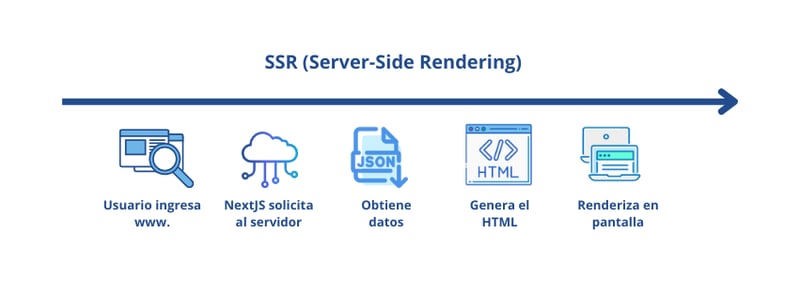Static and Non Static Members
1.Static Members (Class-Level) Defined using static keyword. Belongs to the class rather than an instance of the class. Shared among all objects of the class. Can be accessed without creating an instance of the class. Example: class Example { static int count = 0; // Static variable static void displayCount() { // Static method System.out.println("Count: " + count); } } public class Main { public static void main(String[] args) { Example.count = 5; // Accessing static variable without creating an object Example.displayCount(); // Calling static method } } Output: Count: 5 2.Non-Static Members (Instance-Level) Do not use static keyword. Each object of the class gets its own copy. Requires an object to access. Example: class Example { int count = 0; // Non-static variable void displayCount() { // Non-static method System.out.println("Count: " + count); } } public class Main { public static void main(String[] args) { Example obj1 = new Example(); Example obj2 = new Example(); obj1.count = 10; obj2.count = 20; obj1.displayCount(); // Output: Count: 10 obj2.displayCount(); // Output: Count: 20 } } Output: Count: 10 Count: 20 When to Use Static? ✅ Use static when the data is shared across all instances (e.g., utility methods, constants). ❌ Avoid static when each object should maintain its own data (e.g., object attributes). When to Use Non-Static? ✅ When each object should have different values. ✅ When each object should have its own behavior. ✅ When OOP features (Encapsulation, Polymorphism, Inheritance) are needed. ✅ When memory should only be used when an object exists. ❌ When data should be shared among all objects (e.g., static int totalEmployees). ❌ When methods do not depend on object variables (e.g., static int square(int x)). ❌ When memory efficiency matters (e.g., static configurations). ❌ When working with constants (e.g., static final double PI). ❌ When object creation is unnecessary (e.g., utility/helper methods).

1.Static Members (Class-Level)
- Defined using static keyword.
- Belongs to the class rather than an instance of the class.
- Shared among all objects of the class.
- Can be accessed without creating an instance of the class.
Example:
class Example {
static int count = 0; // Static variable
static void displayCount() { // Static method
System.out.println("Count: " + count);
}
}
public class Main {
public static void main(String[] args) {
Example.count = 5; // Accessing static variable without creating an object
Example.displayCount(); // Calling static method
}
}
Output:
Count: 5
2.Non-Static Members (Instance-Level)
- Do not use static keyword.
- Each object of the class gets its own copy.
- Requires an object to access.
Example:
class Example {
int count = 0; // Non-static variable
void displayCount() { // Non-static method
System.out.println("Count: " + count);
}
}
public class Main {
public static void main(String[] args) {
Example obj1 = new Example();
Example obj2 = new Example();
obj1.count = 10;
obj2.count = 20;
obj1.displayCount(); // Output: Count: 10
obj2.displayCount(); // Output: Count: 20
}
}
Output:
Count: 10
Count: 20
When to Use Static?
✅ Use static when the data is shared across all instances (e.g., utility methods, constants).
❌ Avoid static when each object should maintain its own data (e.g., object attributes).
When to Use Non-Static?
✅ When each object should have different values.
✅ When each object should have its own behavior.
✅ When OOP features (Encapsulation, Polymorphism, Inheritance) are needed.
✅ When memory should only be used when an object exists.
❌ When data should be shared among all objects (e.g., static int totalEmployees).
❌ When methods do not depend on object variables (e.g., static int square(int x)).
❌ When memory efficiency matters (e.g., static configurations).
❌ When working with constants (e.g., static final double PI).
❌ When object creation is unnecessary (e.g., utility/helper methods).










































































































































































![[The AI Show Episode 142]: ChatGPT’s New Image Generator, Studio Ghibli Craze and Backlash, Gemini 2.5, OpenAI Academy, 4o Updates, Vibe Marketing & xAI Acquires X](https://www.marketingaiinstitute.com/hubfs/ep%20142%20cover.png)



























































































































![[FREE EBOOKS] The Kubernetes Bible, The Ultimate Linux Shell Scripting Guide & Four More Best Selling Titles](https://www.javacodegeeks.com/wp-content/uploads/2012/12/jcg-logo.jpg)



![From drop-out to software architect with Jason Lengstorf [Podcast #167]](https://cdn.hashnode.com/res/hashnode/image/upload/v1743796461357/f3d19cd7-e6f5-4d7c-8bfc-eb974bc8da68.png?#)






































































































.png?#)




.jpg?#)































_Christophe_Coat_Alamy.jpg?#)








































































































![Rapidus in Talks With Apple as It Accelerates Toward 2nm Chip Production [Report]](https://www.iclarified.com/images/news/96937/96937/96937-640.jpg)









































































































































